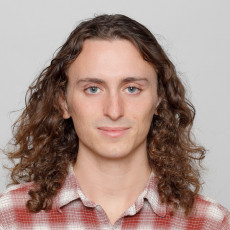As a seasoned traveler, I don’t approach journeys to far-away places with the same apprehension that I used to. If I can thrive in Zimbabwe, Ghana, Kenya, and Uzbekistan, I could certainly make my way in India. However, I couldn’t shake the feeling that I would encounter problems at the border. Previously, while conducting research for my Watson Fellowship titled Jewish Persistence in the Periphery of the Diaspora, I received two Indian visa rejections and was later told by the Bureau of Immigration that any future applications would be heavily scrutinized. It’s safe to say that I was relieved when I crossed the border without needing to answer a single question.
Fortunately, the rest of my journey was as uneventful as immigration in New Delhi turned out to be. It was draining, however. I never sleep well on planes, and three night flights combined with a 2am layover in the Delhi airport meant I stayed awake for nearly 72 consecutive hours. Simultaneously too tired to focus and unable to rest, I spent some of my journey reading and even more time staring into space in dimly lit aircraft cabins.
When I finally stepped out of the Kolkata airport in the early morning sun, the hot, humid, and heavily polluted air was an immediate assault on my already weary body. During my cab ride into the city, it struck me, in my exhausted state, just how vast and bewildering Indian cities can be. Amidst the chaos created by incessant honking, nonexistent traffic laws, street vendors overflowing into the streets, free-roaming animals, and harsh weather conditions, there is beauty and grandeur. Intricately decorated mosques, mandirs, and viharas sit next to colossal colonial buildings, manicured parks, and bustling markets. Against all odds, everything fits together rather seamlessly. The city’s vibrant energy, a blend of old, left me both overwhelmed and captivated.
During my first morning in India, wandering the streets aimlessly in the sticky clothes I’d been wearing for the better part of a week while waiting for check-in at my guesthouse, it occurred to me just how lucky I am to be here. I am thankful that The Advocacy Project (AP) and its partner Jeevan Rekha Parishad (JRP) have given me the opportunity to support causes I care deeply about in the land of the Mughals, Gajapati, and Maratha. India is, and will remain, the most populated country for the foreseeable future. What happens here matters.
Starting in June, I will spend ten weeks with JRP in Odisha. Splitting my time between the capital Bhubaneswar and Daspalla, a town in the interior, I will support two critical projects:
- The expansion of their highly successful malaria prevention program.
- Contributing to a start-up to help tribal women produce and market Neem oil as a source of income and as protection against malaria.
Upon my arrival in Odisha, the day-to-day responsibilities will become clearer, but I am eager to assist with a variety of tasks. These may include acquiring mosquito nets and other preventative equipment at competitive prices, writing grants, organizing training sessions, and marketing the start-up program through community profiles and visual materials. Furthermore, I will capture the start-up’s progress through professional photography and videography. I am especially excited for fieldwork in Daspalla where I will have the opportunity to directly engage, support, and help educate the communities that produce Neem oil.
Although I have not yet met them in person, the competence, passion, and drive of my future colleagues at JRP is more than evident. I am confident that our collaboration will be fruitful, and look forward to promoting economic development while lending a hand in the fight against one of the world’s deadliest diseases. I also know the work will be difficult. With temperatures that can soar as high 118 degrees, little English comprehension in tribal areas, and uncertain funding streams, success will require resilience and grit. I don’t expect to change the world in one summer, but I will be happy if I can shed light on this crucial work, help fund it, and build long-term working relationships. Fortunately, my early arrival in the subcontinent will give me some time to adjust and prepare.
Today is May 18th. My fellowship begins June 3rd. In the interim, I will join some of my classmates from Harvard in the last Shangri La: Bhutan. Before I settle into the steamy lowlands of Odisha, I plan to stock up on fresh air, attend a meeting with the Honourable Prime Minister to discuss sustainability and economic development, trek through lush forests and across snowy passes, and decompress from a challenging academic year. When I get to Bhubaneswar, I will be ready for action. With any luck, the monsoon will have arrived by then, bringing cooler temperatures along with it.
Posted By Adin Becker
Posted May 19th, 2024





3 Comments
Mary Ellen Cain
May 20, 2024
Adin, it sounds like you have a very full, challenging and productive summer ahead of you! I look forward to your updates!
Iain Guest
May 27, 2024
Very nice first blog, Adin! Glad you survived the journey and looking forward to hearing about your adventures before Odisha! As for the heat, it will hopefully relent soon. Then comes the monsoon and mosquitoes! You’ll be our first Fellow to work at JRP and we hope you’ll cement a strong working relationship by building a strong personal bond with this very talented group. I’m also anxious to see whether they can advise other partners about how to control the scourge. We expect LOTS of good Neem footage! Let us know when you arrive and safe travels.
Bobbi Fitzsimmons
May 28, 2024
You certainly have a full schedule ahead of you. We’re so excited to be partnering with JRP and hope it will result in another productive business for women. You sound well-prepared for what may lie ahead. I look for to hearing your further adventures.